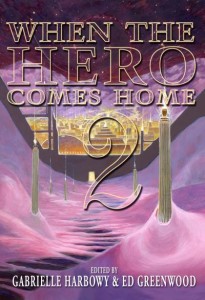A business plan for writers – what an absurd idea! That may be your first reaction, but chances are that you already know how you want to your writing career to evolve. A business plan is the road map to launching and growing your career in a strategic, efficient manner. Everything you’re doing now – networking, writing, learning craft, blogging – it’s all part of a plan but let’s face it, we’re writers first and the less time we spend floundering or making mistakes with the business part of our career, the more time we’ll have for writing.
Here are the key elements for a writer’s business plan:
1. Company Description
Yup, you’re a company with accompanying tax write offs but let’s be more specific than that. Does your business include writing, editing, holding workshops, attending trade fairs, or other activities related to writing and promotion? As a writer, do you write short stories, novellas, novels, magazine articles, or some combination? What is your genre? Who is the target audience?
2. Operations Plan
This is a one person company, right? Wrong. For tax purposes you may be a sole proprietor or an incorporated entity but your company is bigger than one person. For example, who are your support groups – writers’ groups, critique groups, book clubs, blog group? Do you belong to interest groups locally or on-line such as science, knitting, bird watching, Sherlock Holmes fan club? These are important to note because they not only inspire you and provide valuable input they may also be part of your readership. Who are your mentors, critiquers and editors?
Bestselling authors have an organization. Take a look at the Acknowledgements page of their books. Most Acknowledgement pages list editors, research contacts, readers – anyone who helped them. For ease of organization, you can divide your support network into four categories: craft, business (contracts, taxes, editors, finances, etc), networking (conferences, on-line, writers groups, readers groups), and market access. Note any deficiencies you have in these areas and develop a strategic plan to deal with that aspect. For example, I need to know more about marketing strategies and so I’ve chosen to attend a seminar on marketing rather than a critique workshop to fill this gap. Finding the experts I need fills a gap in my organization and allows me to use my use my limited budget wisely.
Remember – it takes one person to have the idea and write the story, but it takes a community to support a writer and make the work available to the reader. Who is in your community?
3. Products and Services
We touched briefly on this in the Company Description, but now we need to get specific. You may be writing in one genre or several writing poetry, short stories or novels and writing for the children’s, young adult or adult markets. In the market you’re writing for, who exactly is the audience? For example, not all people who read mysteries love the same type of mystery or the same degree of graphic language. Those loving cozy mysteries (think Stephanie Plum series) may not like Ian Rankin’s gritty detective or James Patterson’s thrillers. What type of mystery/fantasy/romance do you write? Who will it appeal to? What are the sensibilities of the genre and does your writing reflect that? Where will your work be placed on the bookshelf?
If you’re editing or involved in some other aspect of writing (volunteer or paid), note that too. Depending on the level of your involvement, you may need to create separate business plans. However, having them listed in one spot will help you manage your time better when setting goals.
4. Marketing
It’s so easy to want to stay at home and only write or at most, to go to a writing meeting where we chat with like minded people. Marketing means getting out of our comfort zone and reaching out. The easiest way to do this is to have a plan and to follow it. A haphazard approach erodes confidence and the ability to present things in a comfortable confident manner.
For every product you need to have your elevator pitch, synopsis, chapter by chapter plot line, a great manuscript before you promote. Having these will help you understand your product so you can differentiate it and create a unique selling proposition. In other words, what distinguishes your story from others it the market? Why will your target market (children, young adults, mystery/romance/horror fans) like it?
Describe how your stories will be sold – book stores (which ones?), on-line, book clubs, and how you intend to get the books there. Even if you have a traditional publisher, you still have to market and sell, so be prepared to do that.
What are your promotional tactics? In other words, how will you reach your audience? Some examples are: tradeshows, school appearances, readings, book tour, social media marketing (Twitter, Facebook, etc,), reading clubs (local, Goodreads, etc), on-line advertising, conventions, local advertising and book trailers. Your website should appeal to the book buyer. One writer I know designed her site for teachers because they’re the ones who will be buying her books and will be allowing her to make school presentations. Who is your website designed for – readers, teachers, technical users (how to books), other writers?
There have been many good posts on marketing at Fictorians so just click on the Marketing category and you’ll receive a ton of information. Just remember to choose a few things to do (for example you can’t belong to every book club and effectively utilize all social media) and do them well.
5. Finances
Having a budget will focus your marketing strategy and allow you to develop and manage your business more effectively by allowing you to prioritize. Which convention/workshop can I afford to go to? Do I purchase business cards or have a professional design my website? What can I do for free?
After all the work we do to write our wonderful books, we can’t afford to fail now because we failed to plan the business part of our passion.



